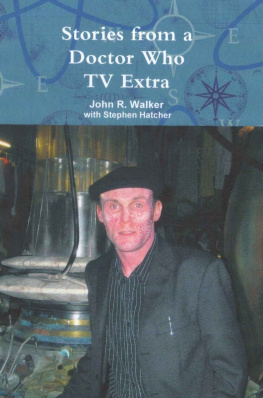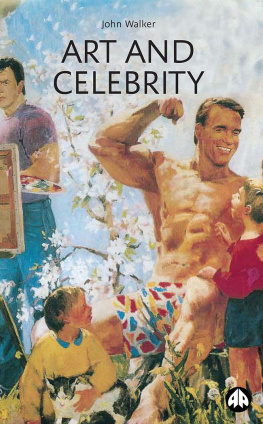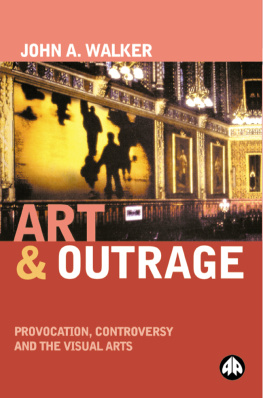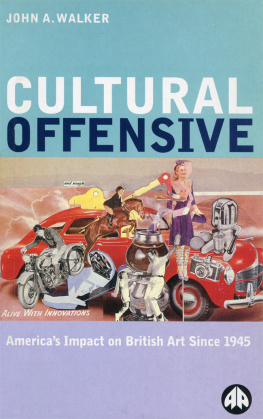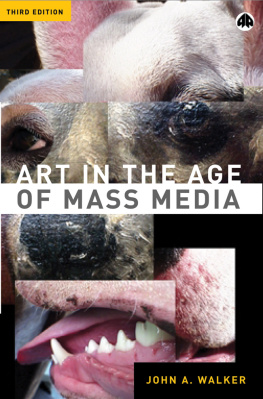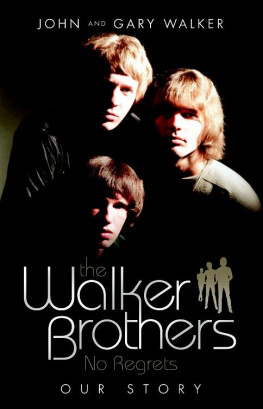
This edition is published by PICKLE PARTNERS PUBLISHINGwww.pp-publishing.com
To join our mailing list for new titles or for issues with our bookspicklepublishing@gmail.com
Or on Facebook
Text originally published in 1962 under the same title.
Pickle Partners Publishing 2016, all rights reserved. No part of this publication may be reproduced, stored in a retrieval system or transmitted by any means, electrical, mechanical or otherwise without the written permission of the copyright holder.
Publishers Note
Although in most cases we have retained the Authors original spelling and grammar to authentically reproduce the work of the Author and the original intent of such material, some additional notes and clarifications have been added for the modern readers benefit.
We have also made every effort to include all maps and illustrations of the original edition the limitations of formatting do not allow of including larger maps, we will upload as many of these maps as possible.
HONEST JOHN:
THE AUTOBIOGRAPHY
OF
WALKER M. MAHURIN
TABLE OF CONTENTS
Contents
TABLE OF CONTENTS
FOREWORD
I THOUGHT long and hard before deciding to put this story into book form. I am not literary nor am I an author, two facts that will be evident to any reader. For sixteen years I was a devoted career military officer. Six years ago I became an executive for a major aircraft corporation, then a salesman for an electronics corporation, and recently a development planner for still another corporation. I find that I am happy in civilian life for the first time since leaving the service in 1956. This book could possibly result in the destruction of that happiness.
This story has been difficult for me to tell. It does not reflect to my credit and could revive strong sentiments that I have long sought to suppress. Then, too, while writing I had to relive many tense and painful moments. Those who read this book will either agree with what I have said and done or violently disagree. I dont expect in-between feelings. I decided to tell the story as plainly, simply and truthfully as I could remember it, then stand back and let the reader judge my actions. The title Honest John has a double meaning.
The actual mechanics of the book began in March of 1956, when the officers of the 27 th Air Division at Norton Air Force Base prevailed on me to tell them the story of my capture and imprisonment in North Korea during the Korean War. I talked to them for four and a half hours and my conversation was recorded. Later my words were transcribed into some eighty typewritten pages. Often after I left the Air Force I ran into people who questioned my decision to give up service life, apparently thinking that I had either been forced out or had elected to leave because of prison-camp experiences. This story will explain my reasons.
In retrospect I think that I would behave the same if faced with the same set of circumstanceswith one exception. Should events unfold so that I face capture by the same enemy, I will never let myself be captured alive. At the time I felt I did the only thing I could do, and the outcome was as it should have been.
In this book I have made what I consider to be rather startling revelations. Because I work in a defense industry I had to be sure that what I was saying would not be objectionable to my service friends scattered throughout the Department of Defense. My book has been read by both Major Gene Gurney and Major James Sunderman of the Office of the Secretary of the Air Force Information Services. Fortunately, they did not disapprove. I also felt obligated to show many portions of the book to General Frank Everest, recently retired Commander of Tactical Air Command and a personal friend. He, too, expressed no objection. Since time has been limited, I have made no effort to show pertinent parts of the book to all who have been mentioned. I sincerely hope that none is offended.
When the reader has reached the last page he will have been exposed to words that I wanted to say in the way I wanted to say them. I hope that I will have made a point or two, because that is why I wrote the book. Another author, a man I have not yet had the pleasure of meeting, has written a great book about his experiences during World War II. He concluded with the statement, Show me a hero, and Ill show you a bum. He may be right, but I must leave it to the reader to decide which fits me.
PART 1: THE LITTLE WAR
1.
WHEN the Korean War broke out I was assigned to Headquarters United States Air Force in the Pentagon. My job, as assistant executive to the Secretary of the Air Force, consisted largely of answering correspondence addressed to the Secretary by people seeking favorspretty slow duty for a guy who had spent the major portion of his life in the cockpit of an airplane. But once in awhile we got a letter that would brighten up the day.
Once a man wrote to tell of his invention: an engine that would enable an airplane to fly nonstop several times around the world without refueling. His letter appeared to be plausiblehe claimed to have the engine in his garage, in working orderand we directed him to the proper developmental agencies in the Pentagon. After their evaluation he was informed that his invention was a little ahead of its time, whereupon the man wrote to me in rather abusive terms, threatening to turn his engine over to either the Russians or to Life Magazine if we didnt snap it up immediately. This sounded odd, and I decided to have a real investigation run on him. He turned out to be a retired railroad engineer who spent his time rocking back and forth in a rocking chair, working up supercharged dreams and putting them down on paper.
Another inventor in the general crackpot group was a man who claimed to have developed an all-plastic guided missile. On the heels of his correspondence he invaded the Pentagon and my office with a ten-foot guided missile. It had a wing span which could hardly be maneuvered through the doorway. He claimed to have invented a new and superior type of plastic for aircraft construction, and he wanted the Air Force to give him $50,000,000 to set up factories and a business for him. We had other fish to fry.
More monotonous than screwball inquiries were those from harassed Congressmen on the Hill. Usually these revealed the legislators to be the rope in a tug of war between organized pressure groups and the voters back home. I became a real poison-pen pal with one Congressman who bedeviled us more than the rest. One day he wrote to the Secretary of the Air Force, asking, Please give me the official Air Force position on cotton linters. The letter came to me for action. It took me a week to find out what cotton linters were, let alone find out what one did with them. The answer from the Department of Commerce, which had also been asked: They are used to stuff pillows.
There were many other queries. Why had the Air Force opened SNARF Air Force Base? Why had the Air Force closed BARF Air Force Base? We tried to answer them all as politely as possible.
It wasnt easy to get away from paper pushing; higher brass usually outranked me for available aircraft. Quite a few of my World War II cronies, however, were still in active tactical outfits, and once in awhile I could con someone into letting me try the new jets, just to keep my hand in. After all, the Air Force had invested many thousands of dollars in me as a flyer, and I wanted the investment to draw interest.




